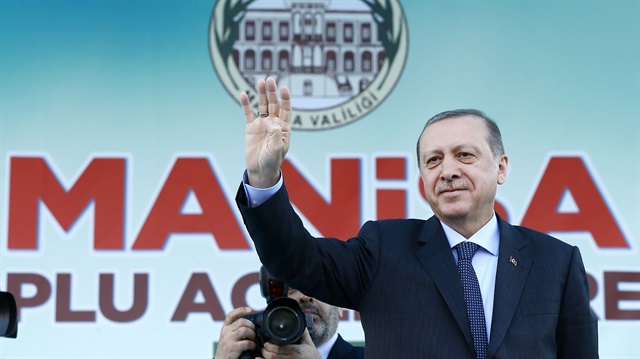
Turkey is concerned over the negative reaction to the potential visit of President Recep Tayyip Erdoğan to Germany, the head of the Turkish parliament's Human Rights Commission said on Friday.
Ruling Justice and Development (AK) Party MP Mustafa Yeneroğlu issued a written statement criticizing the interior minister of the German state of North Rhine-Westphalia (NRW) Ralf Jager who said he would attempt to prevent such a visit.
Erdoğan is reportedly expected to hold a rally in the German city of Cologne next month, ahead of the April 16 constitution referendum, but several German officials have opposed the idea, German media have reported.
Jager on Thursday told a local German newspaper: “Freedom of expression must not be abused in order to promote constitutional change in Turkey, to restrict fundamental rights and reinstate the death penalty. We must prevent intra-Turkic conflicts."
“It is the task of the federal government to ensure that such performances do not take place in NRW or elsewhere in Germany," the minister said.
"Nearly 1.5 million Turkish voters are living in Germany. Many of these people do not have the right to vote in Germany because of Germany's restrictive and outdated citizenship policy," Yeneroğlu said.
To become German, non-EU and non-Swiss citizens must usually relinquish their nationality.
Millions of Turkish immigrants live in Germany.
Constitutional reform has been under discussion since then-Prime Minister Recep Tayyip Erdoğan was voted president in August 2014.
The 18-article bill would hand wide-ranging executive powers to the president and abolish the prime ministerial post. The president would also be allowed to retain ties to a political party.
Other changes would see the minimum age for parliamentary candidates reduced to 18 from 25 and the number of deputies would also rise to 600. Simultaneous parliamentary and presidential elections for a five-year term would be held in November 2019 under the new constitution.














